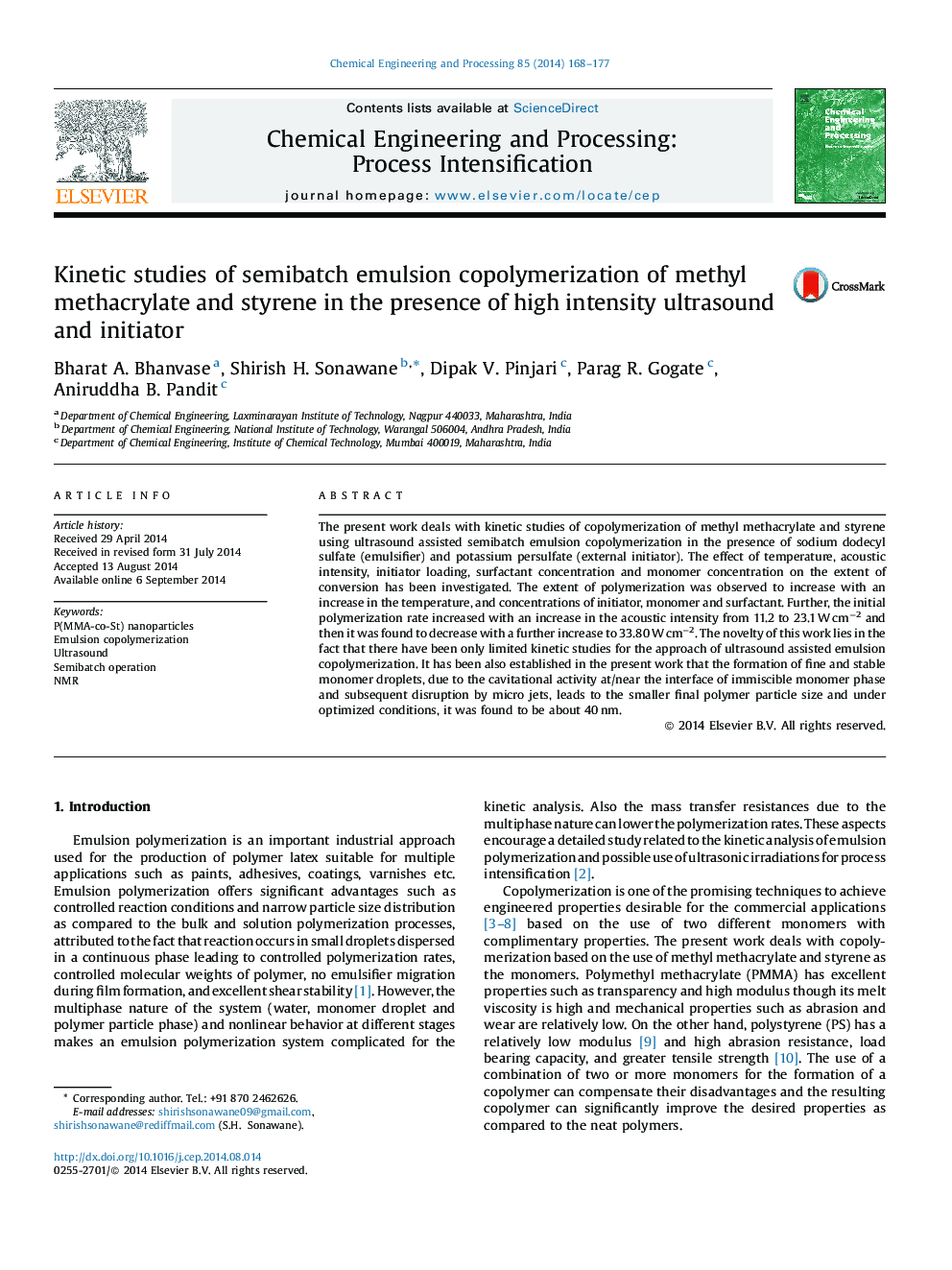| Article ID | Journal | Published Year | Pages | File Type |
|---|---|---|---|---|
| 686847 | Chemical Engineering and Processing: Process Intensification | 2014 | 10 Pages |
•Kinetic studies of MMA and styrene copolymerization using ultrasound assisted approach.•The effect of different kinetic parameters on conversion and polymerization rate was studied.•Acoustic intensity plays important role during emulsion copolymerization.•Fine and uniform polymer particles of size 40 nm were produced.
The present work deals with kinetic studies of copolymerization of methyl methacrylate and styrene using ultrasound assisted semibatch emulsion copolymerization in the presence of sodium dodecyl sulfate (emulsifier) and potassium persulfate (external initiator). The effect of temperature, acoustic intensity, initiator loading, surfactant concentration and monomer concentration on the extent of conversion has been investigated. The extent of polymerization was observed to increase with an increase in the temperature, and concentrations of initiator, monomer and surfactant. Further, the initial polymerization rate increased with an increase in the acoustic intensity from 11.2 to 23.1 W cm−2 and then it was found to decrease with a further increase to 33.80 W cm−2. The novelty of this work lies in the fact that there have been only limited kinetic studies for the approach of ultrasound assisted emulsion copolymerization. It has been also established in the present work that the formation of fine and stable monomer droplets, due to the cavitational activity at/near the interface of immiscible monomer phase and subsequent disruption by micro jets, leads to the smaller final polymer particle size and under optimized conditions, it was found to be about 40 nm.
